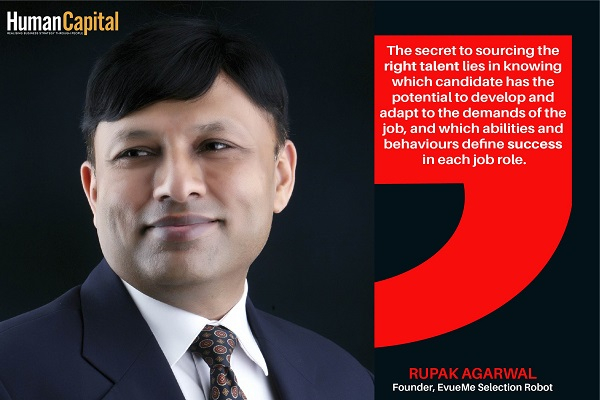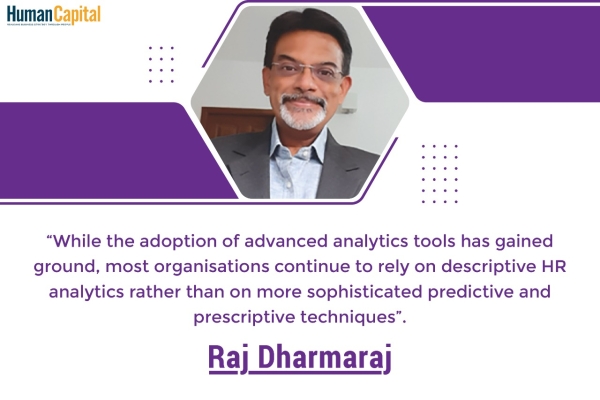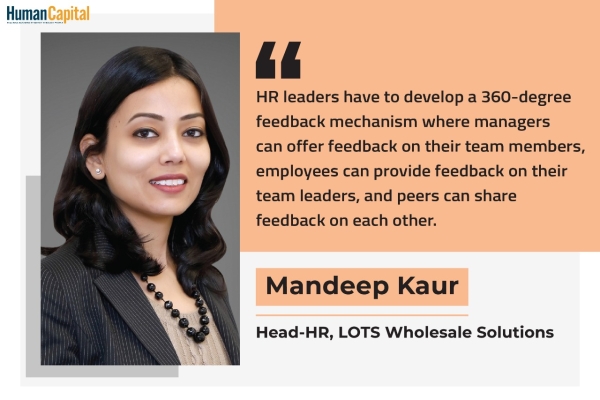What is 2020 going to bring for talent professionals and candidates? And more importantly, what will drive talent success in 2020?
The term “disrupt” these days has become substitutable with innovation and success. A Google search on “disrupt” yielded me over 300 million results in 2020, ten times more than in 2010. I was left wondering, “What is 2020 going to bring for talent professionals and candidates? And more importantly, what is going to drive talent success in 2020?”
I spoke to Ruchi, the Talent Acquisition Head of one of the contemporary enterprises in present times. She leads an efficient team and has been at the source of standardizing processes that once used to deliver results, but no more. She shared with me that her team is now overworked, struggling between sourcing right resumes, scheduling first-level telephonic screenings, following-up on outcomes with hiring managers, attending meetings, conducting HR rounds with potential hires, and so on. Moreover, by the time they near the stage to close an offer with the worthy candidate, one of the two things happen—either the candidate backs out, or the hiring manager revises the requirements.
Ruchi wants her team to offer a very personalized, attentive candidate experience, but is held back by the time required from her already pressed recruiting team.
The world around Ruchi is changing at a very fast pace. As business keeps getting disrupted, the hiring needs also keep changing. She is now wondering, “Should I keep matching requirements given by the hiring managers or hire for potential?” And in the latter case, “How do I spot the potential in the candidates?”
“Expect the unexpected” has become an inseparable part of Ruchi’s daily grind. She is convinced that at some point, she will tell her CHRO/CEO about how stressed she is. Yet it never seems to happen!
While you process Ruchi’s story, I would like to share another story about Amit, who is a 21stcentury candidate. He is sharp, ambitious and efficient in his work. Having completed two years in his current organization, he wants to feel empowered and has been looking for new challenges with no success in the past six months. I happened to ask Amit about the problems he was facing. Amit beautifully articulated his concerns in the following three key observations:
◆ Interviews follow such a traditional format. Create a job posting, post it on LinkedIn, the company’s website, job boards, and on various other channels. Then, wait for people to apply, funnel the applicants through the applicant tracking system, pick qualified candidates, and start the screening process. After this, contact the candidates over an email, schedule phone screens, do phone screens, and blah, blah, blah—it is such a long and tedious process! Why cannot recruiters initiate a straight interview conversation with me through texting which is simpler, straightforward, and free from hassles of login or password?
◆ I would love to connect and know who the hiring manager is and get answers to some of my very basic questions even before I decide to apply. Why can the screening not be through a video call with the hiring manager directly before I apply? This will give me an opportunity to know about the organization—its culture, mission, vision, industry, the challenges, and what s/he expects of me in that job role. Why do I have to move through such a long HR funnel?
◆ I am one of the “organization’s consumer”, yet nobody seems to really bother about delivering a “candidate experience” which I can cherish. Why can’t they allow me to take assessments as per my convenience of time and venue? Why can’t they cut down the number of interview rounds, and the time it takes for them to say a yes/no? Why can’t they reengineer their systems for continuous two-way interactions which allows me to ask questions and speak to people already working there, rather than a one-way recruiter-led communication?
TALENT BRIDGE 2020

So what will the “Talent Bridge” of 2020 (TB2020) and beyond look like? I recently read a very interesting IBM report on “Recruiting 2020”. Supported by intriguing findings of the report[1] and based on my domain expertise, here are five key trends that I think will define business success in 2020 and beyond.
1. Ruchi and her peers constantly grumble about the shrinking pool of talent for the most demanding skills. Yet, most organizations have a prerequisite for a degree. TB2020 suggests that you ask yourself, “Is a degree truly a determinant of a worthy candidate for this role? It’s time to redefine the qualifying criteria and focus on skills. Also, use validated assessments that help you to zero in on candidates with potential quickly.
2. With TB2020 as her coach, Ruchi now uses new-age smart job boards that have helped her step away from the traditional hiring method of matching resumes with job requirements. These smart boards serve as an “ecosystem of needs and a talent pool of candidates” [1] who are pre-screened on a range of competencies required for each job role using validated assessments and cutting-edge technology tools. These smart boards are integrated with talent databases from various institutions, local talent communities, skilling institutes, diversity job boards, minority associations, and also provide quality referrals.
Now, Ruchi searches for candidates by competencies or roles to get ranked profiles, is able to watch their videos recorded through robot interviews, quickly engages with potential candidates using text-based conversations, and assesses them further through video-based interactions. She then aligns all stakeholders over the cloud using cutting-edge technology and extends offers to candidates within a few hours.
3. Ruchi is now, what I prefer to call, the ideal “2025 talent professional”. By implementing Agile talent acquisition methodologies, her team is running “time-bound sprints”[1] that focus on the most business-critical roles. Her team members are now true talent influencers, delivering faster results with more impactful outcomes than ever before.
4. Ruchi is convinced that traditional hiring practices seem like flipping a coin, based on intuition-driven decisions. Her secret to sourcing the right talent lies in knowing which candidate has the ‘potential’ to develop and adapt to the demands of the job and which abilities and behaviours define success in each job role. By using the right technology tools, Ruchi’s team now augments data with insights and makes decisions that are balanced by facts and free from unconscious bias.
5. Amit is now able to watch the hiring manager take him through a virtual reality tour of the organization through a pre-recorded video available on social media and job boards. It makes him feel excited about how he can add value to the organization whilst fulfilling his aspirations. Amit is able to initiate a direct conversation with the hiring team through messaging applications and take assessment tests through voice-enabled robot chat conversations. He appears for on-demand robot interviews at his convenience, where his responses get recorded over video, and he simultaneously interacts with the organization through chatbots with natural language processing to get his queries answered. Finally, Amit is at ease in helping himself be sure of being a ‘right fit’ for the organization.
Reference:
[1] IBM Watson Talent. (2019). Recruiting 2020: Transforming your talent acquisition process. Retrieved from https://www.ibm.com
Do you think hybrid work arrangements would be a common feature of the workplaces going forward?
Trending
-
SBI General Insurance Launches Digital Health Campaign
-
CredR Rolls Out 'Life Happens' Leave For Its Employees
-
Meesho Announces 30-Week Gender-Neutral Parental Leave Policy
-
Microsoft Unveils Tech Resilience Curriculum To Foster An Inclusive Future
-
60% Indian Professionals Looking For Job Change Due To COVID: Survey
-
SpringPeople And Siemens Collaborate For Digital Transformation Push
-
86% Professionals Believe Hybrid Work Is Essential For Work Life Balance: Report
-
Almost 1 In Every 3 People's Personal Life Affected Due To Work Stress
-
Meesho Rolls Out Reset And Recharge Policy For Employees
-
80% Of Talent Leaders & Academics Say Pandemic Changed Skill Needs For Youth: Report
-
Hero Electric Rolls Out 'Hero Care' Program For Employees
-
Human Capital In Collaboration With ASSOCHAM Hosts Virtual Conference
-
IKEA India, Tata STRIVE Collaborate To Create Employability And Entrepreneurship Opportunities
-
SAP India, Microsoft Launch Tech Skilling Program for Young Women
-
DXC Technology, NASSCOM Collaborate For Employability Skills Program
-
Lenskart To Hire Over 2000 Employees Across India By 2022
-
Mindtree Launches Learn-and-Earn Program
-
Tata AIA Extends 'Raksha Ka Teeka' To Its Employees
-
Swadesh Behera Is The New CPO Of Titan
-
NetConnect Global Plans To Recruit 5000 Tech Professionals In India
-
Hubhopper Plans To Hire 60% Of Indian Podcasters By 2022
-
Corporate India Needs More Women In Leadership Roles: Report
-
Aon to Invest $30 Million and Create 10,000 Apprenticeships by 2030
-
Tech Mahindra Launches ‘Gift a Career’ Initiative for Upskilling of Youth
-
40% Women Prefer Flexible Working Options in Post-COVID World: Survey
-
3 out of 4 companies believe they can effectively hire employees virtually: Report
-
Vodafone , CGI and NASSCOM Foundation launch digital skills platform
-
Odisha: Bank, postal employees to deliver cash for elderly, differently-abled persons
-
Skill India launches AI-based digital platform for "Skilled Workforce"
-
Hiring activity declines 6.73% in first quarter: Survey
-
70% startups impacted by COVID-19 pandemic
-
Bajaj Allianz Life ropes in Santanu Banerjee as CHRO
-
Over 70 Percent MSMEs look at cutting jobs to sustain businesses
-
93 Per Cent employees stressed about returning to office post-lockdown
-
Johnson & Johnson India announces family benefits for same gender partners
-
Indian firms turning friendly towards working mothers
-
Welspun India names Rajendra Mehta as new CHRO
-
Wipro partners with NASSCOM to launch Future Skills platform



Human Capital is niche media organisation for HR and Corporate. Our aim is to create an outstanding user experience for all our clients, readers, employers and employees through inspiring, industry-leading content pieces in the form of case studies, analysis, expert reports, authored articles and blogs. We cover topics such as talent acquisition, learning and development, diversity and inclusion, leadership, compensation, recruitment and many more.
Subscribe Now












































Comment